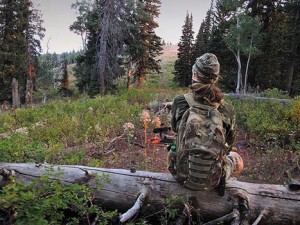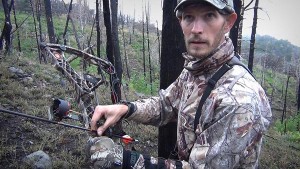
What is “The Good Fight?”
“Keep up the good fight.”
How many times have you heard that? “Keep up the good fight!” What the heck does it mean?
In my last post, I wrote about adversity and how each year, right before the bowhunt, the symbolic ‘steely claws’ tighten their grip on me and makes life downright miserable. As this disrupts my focus on the hunt—the one thing I fight for all year long—then I have no choice but to fight back. So today, I’m addressing the good fight.
My research tells me that “the good fight” is a reference to the biblical figure, Paul, who said, “I have fought the good fight, I have finished the race, I have kept the faith.” (2 Timothy 4:7). As a modern axiom, the good fight refers to anyone who fights for what he believes.
For me, the good fight is the fight against evil and injustice. It’s the fight against selfishness and those who take advantage of others. It’s the fight against a government that intrudes upon our God-given freedoms. I’ll fight against anyone who tries to steal or destroy my freedom, property, or peace of mind. Sometimes I simply fight weeds in my garden or insects in my house. I fight daily for my tiny little space on this planet.
Now, let’s get back to the Christian reference. In Christianity there’s a whole lot of gospel about forgiveness and turning the other cheek. That’s nice and all, but it doesn’t apply here. After all, Paul was a fighter. He fought the good fight (whatever that was), and ever since, Christians have been fighting against something, whether it was persecution, evil, or their right of religious expression.
Occasionally throughout history, Christians even went looking for a fight, as was the case with the Crusades and the Thirty Years’ War. The point is that good people have always fought and will continue fighting for what they believe in. That’s the good fight!
Years ago I was on a bowhunt and just minding my own business. When I returned to my truck one night, I found that someone had cut up my back tires with a knife. Long story short, I was lucky to get off the mountain. But for a long time I was filled with pure hatred and ready to fight. But with no known assailant or motive, I couldn’t fight; nor could I forgive. Thus, the fight stuck with me for a long time.
As with any marriage, my wife and I occasionally have a good ol’ fashioned brawl. We’re both somewhat bull-headed and prone to skirmishes. But later, after we’ve made up, she tells me how she hates fighting. And in a jovial way, I tell her that I love fighting! Fighting is how you address and resolve problems in a relationship. Like it or not, fighting is progress. After a good fight we usually feel much better. It’s just a matter of perspective, I guess.
In the recent past I had two conversations about the good fight with two different people with whom I’m close to. They are both good people, but each had an exact opposite opinion. The first person said something along the lines of, “You shouldn’t fight! It’s a waste of energy. Instead, lie low and stay out off the radar. That’s what you need to do to protect yourself and your family.”
At first this made sense, but after further contemplation I realized I’d never heard anything more selfish and ignorant. His argument accepts that there will always be evil and we shouldn’t do anything to stop it. What a pile of crap! In his defense, he was trying to convince me not to be a martyr; not to waste my energy fighting against “the system,” a battle which I could never win. But I still disagree. Fighting the system is how America was founded in the first place.
The second person I talked to is a fighter. He believes you should always fight against evil wherever it’s found. He actively fights against liberalism, ignorance, government intrusion, corruption, and whatever evil dares rear its head. He’s a family man, a devout father, and a Christian. He’s humble and kind and one of the few great people I know personally.
I say fight the good fight! Fight evil where you can. Avenge the evil done unto the innocent. Hunt the hunters. Any person or entity that exacts purposeful harm upon another person should be fought. Fighting is a righteous cause.
By absorbing all the stress from unchecked aggression, you invite despair, depression, and madness into your life. When I was a kid, my dad said, “If anyone bully’s you at school, I want you to punch them square in the nose as hard as you can. Don’t worry about getting in trouble; I’ll back you up.” Now, my dad was a very peaceful man, but he knew that by allowing myself to be bullied would set my life up for failure. Cowardice is never the answer.
Kids these days are rarely encouraged to fight back. When my son was very young, I told him what my dad told me: to fight back against any bully who would harm him. Much to my chagrin, he refused adamantly, pleading that “it was against the rules.” This pacifist attitude is very unhealthy in the long run, and completely unnatural.
Without the fight, some kids absorb so much mental torture that one day they crack and bring a gun to school and kill a bunch of innocent people. And every time this happens, society divides the blame into three categories: 1) blame the gun, 2) blame the bully, and 3) blame mental illness. But they’re wrong. Society is to blame for taking the fight out of kids. Fighting is natural. It’s nature’s way of establishing balance.
In conclusion, life can turn on you in a second. There is too much evil and too many controlling entities always collaborating against you and your freedom. Happiness is fleeting also, and no one is immune to calamity. By ignoring the good fight—by allowing evil to thrive everywhere—you indirectly hurt the innocent.
It reminds me of a quote by Edmund Burke, who said: “The only thing necessary for the triumph of evil is that good men do nothing.” Evil thrives in a pacified society that teaches kids never to fight. Fighting for what you believe is healthy and natural. If you never fight, you’ll eventually lose your freedom and your mind.
Keep up the good fight!
Click below to read the three previous articles:
Part 1: Overcoming Adversity
Part 2: The Steely Claws
Part 3: Constants, Controls, and Variables








